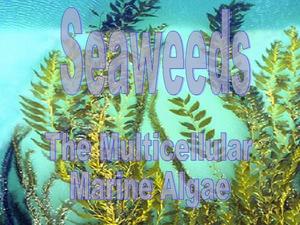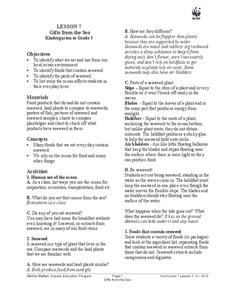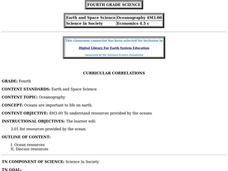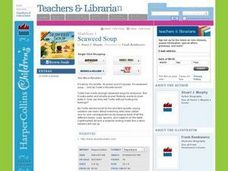Curated OER
Seaweeds
Marine biology beginners learn about the different types of seaweed in this collection of slides. It covers the general structure of seaweed, and then describes the differences among green, brown, and red algae. The presentation...
Curated OER
Glacier Bay - The Kelp Forest
Few people get to visit Alaska's Glacier Bay, and fewer yet go underwater to explore its kelp forest. Through this presentation, viewers get to do just that! In the process, they learn about the simple structure of kelp and the diverse...
Curated OER
Sensational Seaweed
Students compare kelp and land plants. In this sea plant lesson, students look at the role of algae in aquatic environments. They research the properties of kelp and explore seaweed.
Curated OER
Gifts from the Sea
Students investigate parts of the ocean. In this seaweed lesson, students identify foods that contain seaweed, parts of seaweed, and how the ocean affects our lives. As a class students brainstorm ways we rely on the ocean and compare...
Curated OER
Gifts from the Sea
Students discover the oceanic food chain. In this healthy eating instructional activity, student investigate the fish we eat and the food the fish eat. Students discover what ocean animals eat seaweed and what everyday foods we eat...
Curated OER
Oceanography
Fourth graders explore the importance of oceans in supporting life on earth and identify resources obtained from the ocean.
Curated OER
Seaweed Soup
Students read the book Seaweed Soup and learn about matching. For this matching lesson plan, students read the given book, and have to keep track of all the different bowls, cups, spoons, and napkins on the table by matching them up.
Curated OER
Is There Seaweed/Algae in Your Food?
Students discover that seaweed/algae is a small part of the resources the oceans provide. By investigating common household products, students discover that human senses are not enough to detect the presence of seaweed/algae in food.









